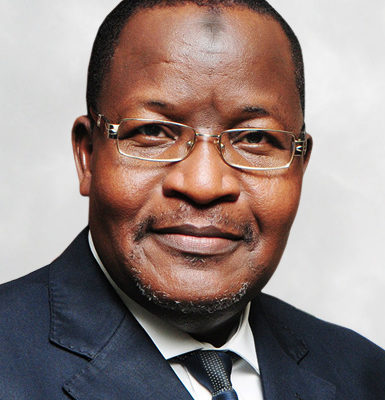Arising from the achievement of the 2013-2018 broadband target and now eying the next generation of the country’s tech revolution, the Nigerian Communications Commission ( NCC) has expressed optimism that it would achieve the 2020-2025 new broadband target without much ado.
When the 2013-2018 broadband penetration target was unveiled not many expressed optimism that the goal would be achieved. But by early 2018, the end date of the target, more than 100 % of the target had been achieved. The prospects for growth were slow in the early years of the target band, but the curve began to fast-track towards 2017 culminating in hitting and surpassing the target in 2018.
The achievement was not without the pragmatic and the buoying strategy in the form of an eighth-point agenda put in place by the Professor Umar Danbatta administration, following his appointment in 2015.
It was the 8-Point Agenda, that helped the country achieve and surpass its broadband penetration target of 30 percent by the end of December, 2018 as stipulated in the National Broadband Plan 2013-2015.
A feat commended by all stakeholders in the country, appreciating the Commission for occupying the driver’s seat in the national drive for broadband development. Indeed, the implementation of the auspicious Agenda gained a lot of traction such that broadband penetration further increased from 32.34 percent (indicating 61,732,130 Nigerians on 3G and 4G networks) to 37.87 percent (indicating 72,289,389 on 3G and 4G networks) between January, 2019 and October, 2019 respectively.
Licensing of new spectrum bands, re-farming certain frequency bands and driving initiatives for increased broadband infrastructure in the country, among others helped tremendously in helping in driving the broadband initiative.
With the optimism generated in the strategy implemented in achieving the 2013-2018 broadband target the federal was emboldened to give a new broadband target for the Commission and all stakeholders in the telecom ecosystem. No doubt the NCC would be the major driver for the success of the new target.


The passion created in 2015 in driving broadband penetration has not waned as evidenced in the ongoing pervasive broadband penetration, which tops its 8-Point Agenda. The Commission has also articulated it clearly, at different fora, that access to broadband will become a fundamental metric for measuring economic development in Nigeria, as it will be central to the growth recorded in every other sector of the economy where telecoms would be propelling automation and digitisation.
Speaking at a forum, Danbatta averred that Nigeria’s thirst for data has grown in significantly, largely to the generational change of telecommunications from the use of voice-dominated technologies (1G and 2G) to today’s data dominated technologies of 3G, 4G and even the much-talked-about 5G. According to him, without doubt, more virtualised engagements are happening online and will continue to be, as it does appears the citizens have an insatiable need for data.
“Nigerians need robust and pervasive broadband connectivity more than ever before in today’s world, where people can easily interact with an Automated Teller Machine (ATM), carry out activities around e-commerce, e-government, and telemedicine, among others on a daily basis in a much seamless manner, thereby boosting their efficiencies,” Danbatta had said.
Following the feats in data uptake spurred by various regulatory interventions by the NCC, the Commission is set on taking Nigeria on a new digital revolution hinged on the 3rd and 5th items of its 8-Point Agenda focusing on ‘optimising usage and benefits of spectrum’ and ‘facilitating strategic collaboration and partnerships’.
It is now collaborating with the Global System for Mobile Communications Association (GSMA) to examine the prospects and challenges of Next-Generation Networks (NGN) such as the Internet of Things (IoT), 5G, Artificial Intelligence (AI), Big Data, among others, in the nation’s telecoms industry.
The collaboration, according to Danbatta was “to provide an avenue for regulators, operators and investors as well as other stakeholders to examine and constructively exchange ideas on the main demand areas for next generation of services, spectrum licensing reforms and the requirements for 5G and other emerging technologies that are to revolutionise the telecom system and users.” The workshop, thus, formed the precursor to the country’s preparedness for the impending deployment of 5G technology, whose commercial deployment on a large-scale and global level is expected to commence fully by 2020.
Consequently, in the last quarter of 2019, the Commission, in its proactive regulatory approach, mid-wifed the trial of Fifth Generation (5G) technology in Nigeria. This made NCC the first telecoms regulator in the whole of West Africa to begin such a historic trial towards unleashing greater digital revolution in the country. Today, 5G trials had been successfully conducted in major cities including Abuja, Calabar and Lagos with MTN being the first operator to carry out the trial. Through 5G network deployment, Nigerian will have access to faster broadband speed on their network. This will result in more efficiency in the course of carrying out their personal and official activities.
Accordingly, the InfraCo framework will provide the needed robust broadband infrastructure upon which the 5G services will ride, thereby impacting e-learning, tele-medicine, e-agriculture, e-health, e-commerce and so on, in terms of speed, latency and more applications that can be made possible when 5G is pervasively deployed by operators in the country. In addition to this, the Commission has projected greater prospects for accelerating digital transformation in Nigeria, through making the country a truly knowledge and digital economy.
Parts of these include the determination of the Commission to ensure that all new base transceiver stations (BTS) to be built by mobile network operators (MNOs) are LTE-compatible; ensure the implementation of the harmonised Right of Way (RoW) charges on state and federal government highways at the cost of N145 per linear meter; ensure elimination of multiple taxation and regulations; facilitate spread of 3G coverage to, al least, 80 per cent of the Nigerian population over the current 56.4 per cent of the population covered with 3G networks.

Other projections by the Commission towards deepening digital transformation include regulatory commitment to ensure operators upgrade their 2G BTSs to 3G; ensure spread of the impending 5G to, at least, five per cent of the population; determination to ensure spread of 4G/LTE services to 100 per cent of the population with a minimum broadband speed of 1.5 megabit per second (Mbps); and finally deployment of, at least, one (1) Access Point of fiber with a 10 gigabyte per second (Gbps) capacity in all the 774 local government areas, among others.












